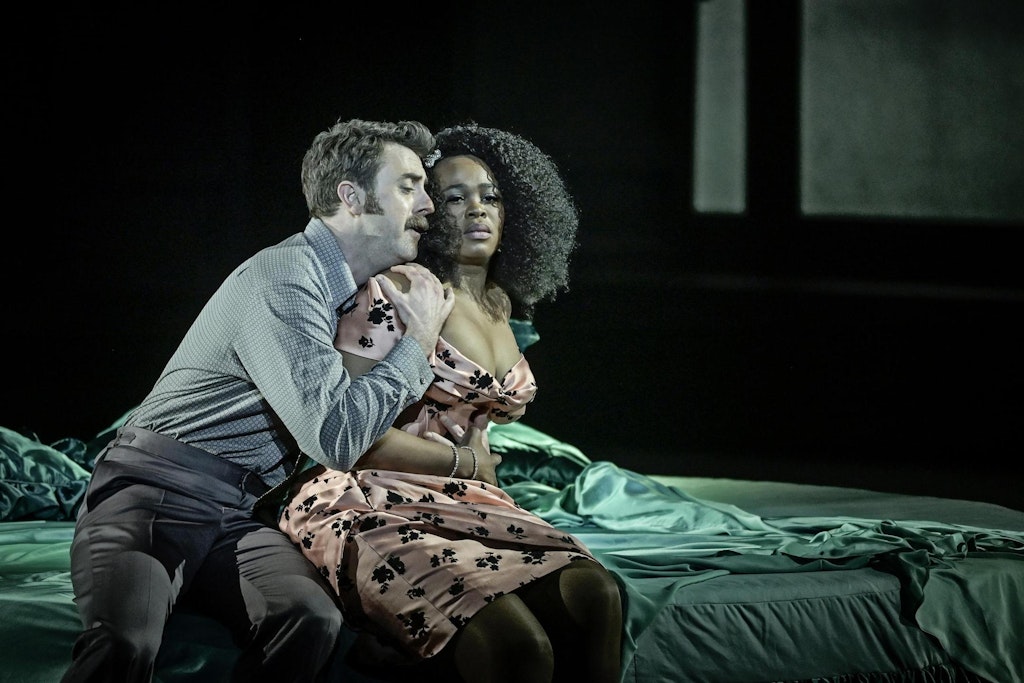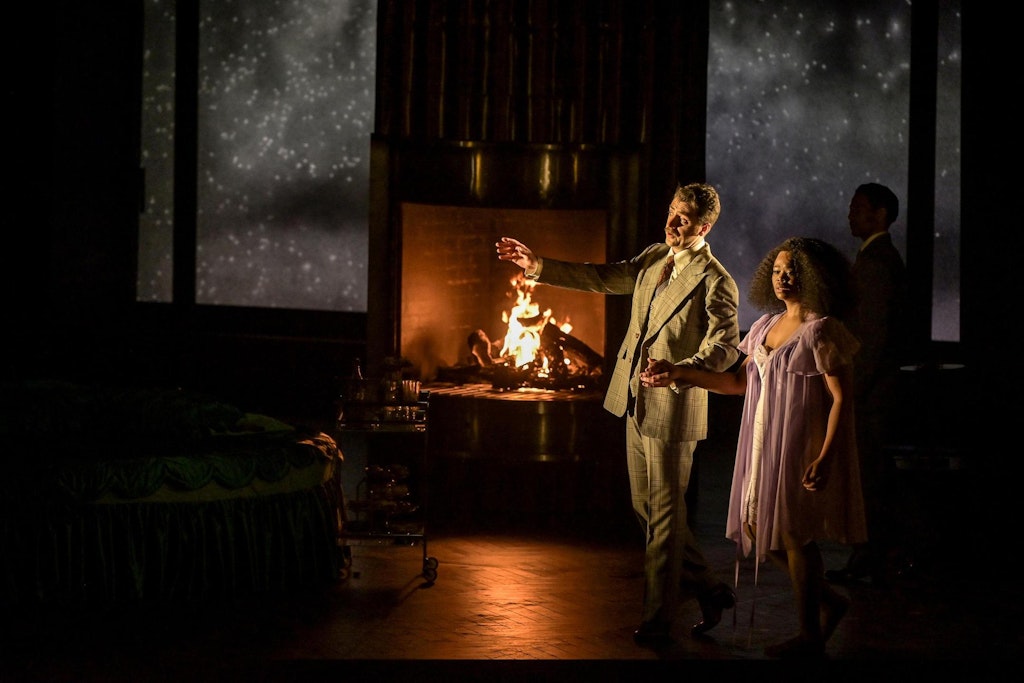This article is taken from the July 2025 issue of The Critic. To get the full magazine why not subscribe? Right now we’re offering five issues for just £25.
Fingers on buzzers … time for this month’s opera quiz!
Question one: which upcoming show do you reckon this could be, slinking poutily towards us, batting its eyelids and generally giving it the big old come-on … with sexy promises of “violence, murder and traumatic childbirth”?
Hmm, maybe a musical version of one of those family faves like The Romans in Britain, or could it be some romantic friperie by Edward Bond or Sarah Kane?
Indeed no! — sadly it’s not Blasted: the Opera with naked oil-smeared punks in some foetid Dalston dungeon, but rather Handel’s spirited and joyous social satire Semele, popping up at Covent Garden from 30 June, a comedy not generally known (until now!) for its rapes and eye-gouging.
Ah well. As has been noted, the Lord giveth and the Lord taketh away. A case in point might be this series of Handel’s oratorios being staged at Covent Garden, in itself a perfectly nice idea from the Director of Opera there Oliver Mears (who also stages Semele).
To date, alas, it has been modified bliss at best: first with Katie Mitchell’s fatuous staging of Theodora — though to be fair even here there were funny bits, like watching two high-tab sopranos pretending to make bombs in a ridiculously detailed yet clearly ham-fisted way — and with its rewritten grrl-power ending, as Handel’s happy martyr cast off her drippy Christian scruples and wasted the whole gang of her mofo Roman persecutors.

After that, mears himself presented Jephtha in a staging that neatly showcased current idiocies. He (or some weepy school-leaver “dramaturge”) had delightedly noticed that the source Bible story mentions Gilead, so naturally within the blink of an eye we were transported to the joyless purlieus of old mother Atwood, with Jephtha demoted from national liberator to a cartoonish, eighteenth-century Ian Paisley — bien sûr the first woman-hating joyless fundamentalist wacko who springs to anyone’s mind; as in Theodora, Handel’s thoughtful digging around the intersections of faith and fate was binned in favour of the usual pre-teen pi-jaw on made-up gender politics, with another stupid ending as toxic patriarch (tick those boxes, baby!) Jephtha is hog-tied and bundled into chokey by the newly empowered ladies …
I won’t spoil the ending for you — Mears does that just fine on his own
So what about Semele? I’m pleased to report (having seen this show when it premiered in Paris in February — same cast, different conductor) that yup, you’re in for more of the same.
You remember the supposed setup: poor loveable silly Semele, having a regular mythic fling with Jupiter, is duped by his outraged wife Juno into going on sex strike until loverboy agrees to appear to her in his true form, “the mighty thunderer”; he obliges, whereupon she is instantly reduced to a small, smoking pile of ashes: cue much air-punching from Juno.
The text, originally by William Congreve, is a squib on human vanity and ambition from the jovial, Swiftian days of Queen Anne, sad, funny and socially piquant all at the same time. And Handel treated it exactly that way, the comedy and tragedy and happiness and sadness massively amplified by the music (as usual).
Well, obviously that’s no good for our little director, busy “casting new light” on — i.e. excising all the breadth and love and generosity from — the piece.
In a coup of breathtaking originality, Jupiter must be outed as not just predator but Ted Bundy-style serial killer, while Semele individuates (well, briefly, ha ha) as a strong woman desiring a relationship of equals — nay, more, an existential threat to social order who must be eliminated at all costs.

All v. well, for the remedial class anyway, but of course a different show entirely, and requiring Juno’s gleefully executed plot to be dialled down (cancelling an inconvenient verse of her triumphing song) lest we find ourselves thinking “I say! A lady did a mean thing!” Plus, the fact that Semele poses as much threat to the Olympus setup as a retarded pet bunny.
I won’t spoil the ending for you — Mears does that just fine on his own. What is actually interesting is how precisely this show showcases the bad-faith tricks of the director’s shabby trade. As with Jephtha and Theodora, the thing is to sift the text for a word or phrase that seems (or can be made) to accord with the ideology you wish to project, and take it from there — viz that Jephtha and its “Gilead”.
Interestingly, this is a trick borrowed from the Nazis, who created and perfected it in their wilful misinterpretations of Wagner at Bayreuth.
Next, you must treat metaphors with extreme literalism, and vice versa: rich pickings in these myths of gods and humans. So — remember the “traumatic childbirth”? — you can look forward to the exciting delivery of bouncing baby Bacchus, and his mama’s somewhat graphic demise.
Does any of this matter? Perhaps these people are actually right, and it really is too terrifically dull and irrelevant to bother with the tiresome concerns of the eighteenth century; I suppose it depends whether you care about those weirdly reactionary members of the audience who don’t particularly want to feel nauseated during Handel’s most ecstatic closing chorus.
But hey, if you’ve bought a ticket, don’t despair: the first couple of acts are fine, in a downbeat sort of way. And take comfort and direction from the advent of young Bacchus: you’ll be needing that drink.












